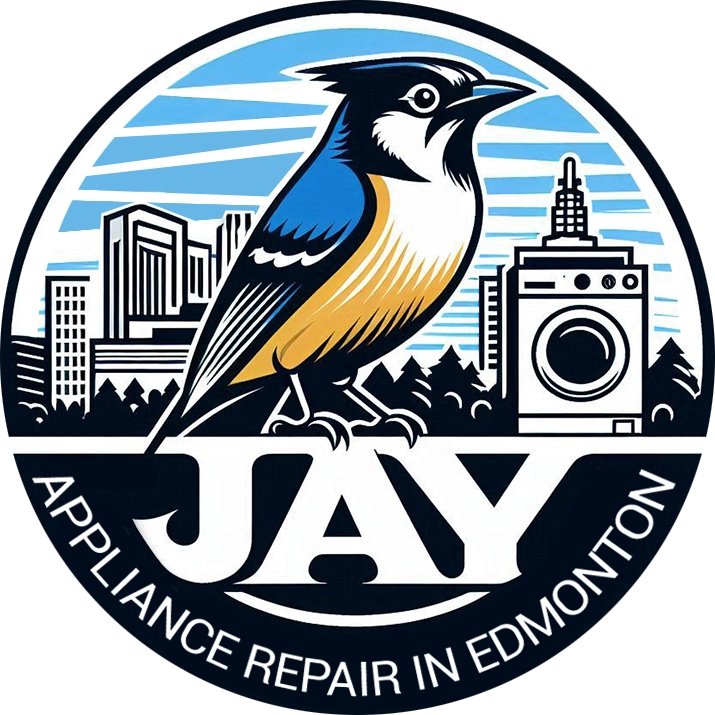Washing machines are built to handle heavy loads and constant movement. Still, many of us have heard that loud banging sound when the spin cycle kicks in. It can be alarming, and it usually means something is not right. At JAY Appliances, we want to break down the most common reasons for this problem and give you practical steps you can take.
Unbalanced Loads
Often the simplest cause of banging sounds is an unbalanced load inside the drum. Clothes can clump together during washing, especially heavy items like towels or blankets. When this happens, the machine struggles to spin evenly. The drum slams against the sides, creating a loud noise that sounds worse with higher speeds.
We suggest stopping the cycle, redistributing the items, and then restarting the spin. If this happens frequently, try washing bulky items separately. Overloading the drum also makes the problem worse, so following the load recommendations in your manual can prevent strain on the washer. If unbalanced loads keep happening even with small amounts of laundry, it could point to another issue with the suspension or internal parts.
Worn Suspension Rods or Shock Absorbers
Washers are designed with suspension rods or shock absorbers that keep the drum steady as it spins. When these parts wear down, the machine cannot control vibrations. This causes the drum to bang against the cabinet. The sound often becomes louder when the spin cycle reaches top speed.
If you hear a dull thumping sound along with shaking, it is a sign these parts may need replacing. Unfortunately, this is not something that can be fixed by simply rearranging laundry. Professional attention is usually required. Our team provides washer repair in Vancouver for cases where internal parts are the root cause. Acting quickly can prevent further damage to the washer frame.
Loose or Damaged Drum Bearings
Another common cause of banging noises is worn drum bearings. Bearings allow the drum to spin smoothly. When they wear out, the drum may wobble or make grinding noises. Over time, this can escalate into loud banging as the drum no longer moves properly within its housing.
Testing for bearing issues can be done by spinning the drum by hand when the washer is off. If you hear grinding or feel resistance, the bearings may be the problem. Since this repair involves taking apart the drum assembly, it is one of the more complex jobs. In many cases, it requires special tools and replacement parts that are not easily accessible to homeowners.
Broken Drive Components
The spin cycle relies on a belt and motor system to turn the drum. If the drive belt is loose, damaged, or slipping, it may cause the drum to shake unevenly. Similarly, if the drive motor or pulleys are misaligned, banging sounds can develop during high-speed spins.
Unlike unbalanced loads, this type of issue does not go away after adjusting the laundry. Instead, the banging becomes consistent and sometimes is accompanied by burning smells or unusual vibrations. For safety reasons, turning the machine off and calling a professional is the best step. These issues often get worse quickly if ignored.
Leveling Problems
A washer that is not sitting evenly on the floor can also produce loud banging sounds. This happens because the uneven footing exaggerates every vibration during a spin cycle. Even a small tilt can lead to noticeable movement.
To check, place a level on top of the washer. If it tilts forward, backward, or to one side, adjust the feet underneath until it sits flat. This is a simple but important step many people overlook. In some cases, placing the machine on a solid platform or moving it to a firmer surface also helps. Floors that flex or sag can make the problem worse.
Damaged Drum Spiders or Support Arms
The inner drum of a washer is supported by metal arms, often called spiders. These parts can corrode or crack over time, especially if the washer is frequently used with very hot water or left damp for long periods. When the support arms fail, the drum loses balance and starts banging loudly inside the washer.
This type of issue is serious because a broken spider arm can cause permanent damage to the drum and tub. Replacement is often necessary, and it can be costly since the drum assembly may need to be disassembled entirely. Still, repairing it early can be less expensive than replacing the entire washer.
Extra Steps to Reduce Wear and Tear
There are a few practices that can prevent banging sounds and extend the life of your washer. Spinning heavy items with lighter fabrics helps balance the load. Cleaning out pockets before washing reduces the chance of loose objects damaging the drum. Running regular maintenance cycles also helps prevent buildup inside the machine that can strain moving parts.
If noises continue even after making adjustments, it is important to seek professional help before the problem worsens. Our company specializes in appliance repair services in Vancouver. We see many cases where early repairs prevent complete breakdowns and save homeowners money.
When to Call for Help
It is not always clear when a noise is minor or serious. As a general rule, if the banging happens every cycle or is strong enough to make the machine move across the floor, professional service is needed. Some issues, like loose bearings or broken supports, get worse quickly if left untreated. Others, like leveling or balancing problems, can be solved at home but may still need advice if they keep coming back.
We encourage anyone dealing with repeated banging issues to contact us. Getting help early keeps your washer safe to use and avoids unnecessary stress on other parts.
FAQ
Why does my washer only bang when washing heavy items?
Heavy items tend to clump together and create unbalanced loads. This makes the drum hit the sides during spinning.
Can leveling fix all banging noises?
Leveling solves some issues but not all. If the machine is level and noises continue, it may be an internal problem.
Should I stop the washer immediately if it makes loud banging sounds?
Yes. Stopping the cycle helps prevent further damage until the cause can be checked.
How do I know if bearings are failing?
Listen for grinding when spinning the drum by hand. Resistance or rough movement are clear signs of bearing wear.
Is it safe to keep using a noisy washer?
No. Continued use often leads to bigger repairs. Addressing the problem early is safer and more cost effective.

